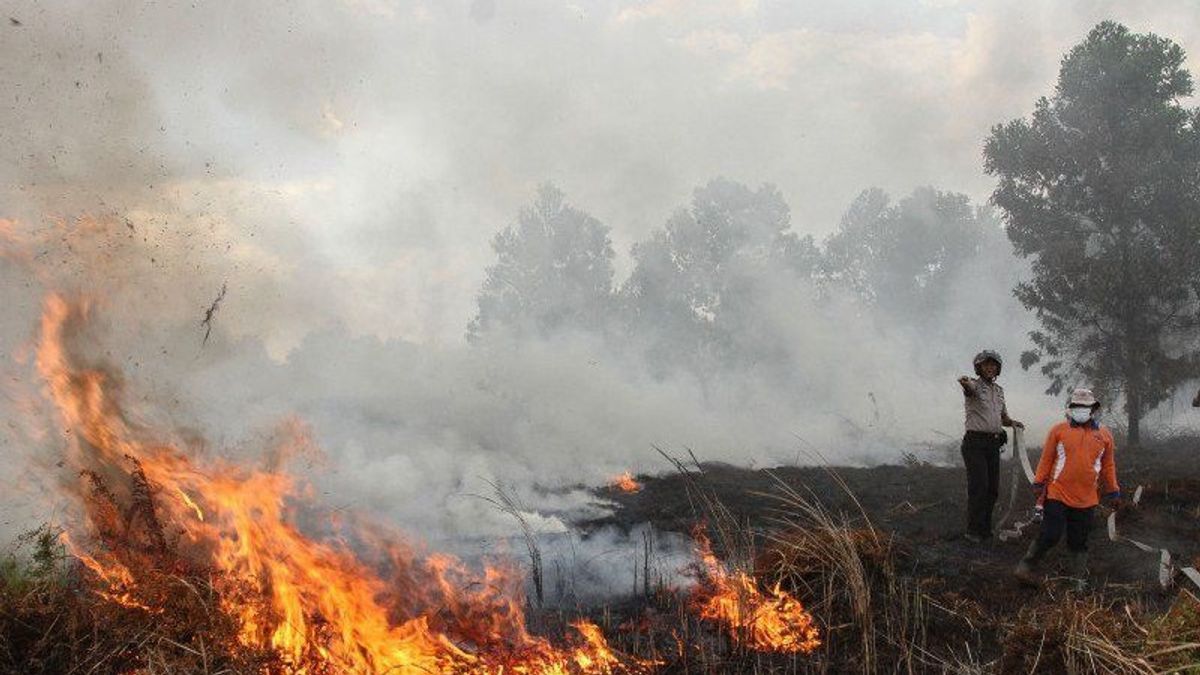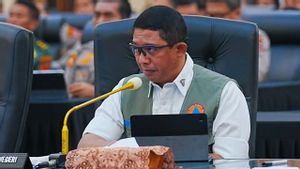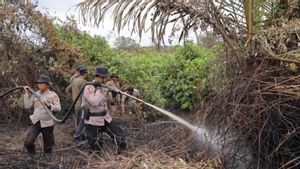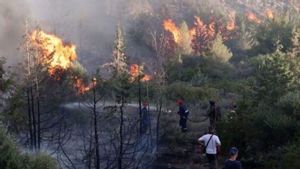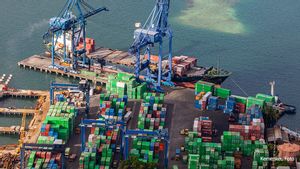PONTIANAK - Chairman of the Indonesian Palm Oil Entrepreneurs Association (GAPKI) of West Kalimantan, Purwati Munawir, said that oil palm companies, especially their members, are committed to implementing forest and land fires mitigation (karhutla) in plantation areas to ensure that there are no fire cases.
"Karhutla is an important concern for palm oil companies in West Kalimantan. Therefore, measurable steps are needed in the context of disaster mitigation which has an impact on health, economy, and various other important aspects. For this reason, we continue to be committed and encourage members to have mitigation steps to prevent forest and land fires and minimize risks that can occur," he said in Pontianak, Sunday.
He explained that there are at least five important aspects in forest and land fire prevention management. The five aspects are prevention, preparedness, early warning and detection, quick response, as well as evaluation, reporting and rehabilitation.
"The program to prevent land fires in all operational areas continues to be encouraged to provide counseling and socialization to the community. Campaign activities and education to prevent land fires through education through story books, campaigns to warn the dangers of land fires through social media, as well as education on fire prevention through approaches to school institutions, community institutions, and religious institutions," he said.
In addition, the company also has a community empowerment program, especially an alternative non-burning agricultural program run and the Empowerment of the Fire Alert Community Team (MSA).
SEE ALSO:
From the aspect of preparedness, members of Gapki Kalbar are expected to be able to provide systems and procedures as well as resources in the prevention and handling of land fires by developing standard operating procedures for preventing and handling land fires, resource personnel control land fires with sufficient and trained amounts according to regulatory regulations.
"There is an Core Team, namely the Emergency Response Preparedness Team (KTD), the reserve team, and the assistance team such as the Fire Alert Community," he said.
This preparedness aspect is strengthened by fire fighting infrastructure (sarpras Damkar) and land fire control infrastructure in sufficient quantities and ready to operate, according to regulatory standards. In addition, it is no less important that a good water management system (in particular in peat areas), to ensure that land remains in a wet condition and land fires are not prone to land fires, such as reservoirs, canal bulks and floodgates.
The next aspect is an early warning and detection system. This aspect refers to the Standard Operating Procedures (SOP) made and compiled based on empirical application in the field, applicable laws and regulations, as well as the standard provisions for certification of sustainable oil palm plantation management.
Several steps have been taken to make fire-prone maps, as well as divide the garden area vulnerability class zones into several categories.
A fire hazard rating (SPBK) system is also needed which is developed through daily weather observations at the field level and BMKG references. Then, the results of observations divide the fire hazard rankings to a low, moderate, high, and extreme level.
"Then are tactical detection patrols, conducting surveillance patrols for fire-prone areas in the field with activities such as field patrols for the KTD team, monitoring of fire towers, and integrated patrols with the Task Force from the District (TNI/Polri) and the Fire Alert Community team," he said.
From the aspect of the quick response to handling land fires, it should maximize operational targets. Where the KTD Team arrives at the location, a maximum of two hours after receiving information on fire events. The maximum time is 2x24 hours of handling, and it is targeted that the fire can be controlled. This effort was carried out through collaboration with the Karhutla Task Force at the site level.
"The last aspect is monitoring evaluation and rehabilitation. The importance of this step is to collect data and information as well as reporting. That way the rehabilitation of land fires can be carried out, as well as the implementation of health programs for handling the impact of smog due to land fires," he said.
Previously, the West Kalimantan Provincial Government continued to strengthen synergies involving related parties as an effort to be alert and prevent forest, land and garden fires in the face of the El Nino phenomenon.
"Strengthening coordination is very important and very strategic considering the tendency to increase hotspots and even land fires that are increasing in several areas in West Kalimantan, although according to the weather forecast from BMKG there is still the potential for rain with moderate to heavy intensity," said Head of the Facilities Infrastructure and Protection Division of the West Kalimantan Province Plantation and Livestock Service, Erita Fitriani.*
The English, Chinese, Japanese, Arabic, and French versions are automatically generated by the AI. So there may still be inaccuracies in translating, please always see Indonesian as our main language. (system supported by DigitalSiber.id)
